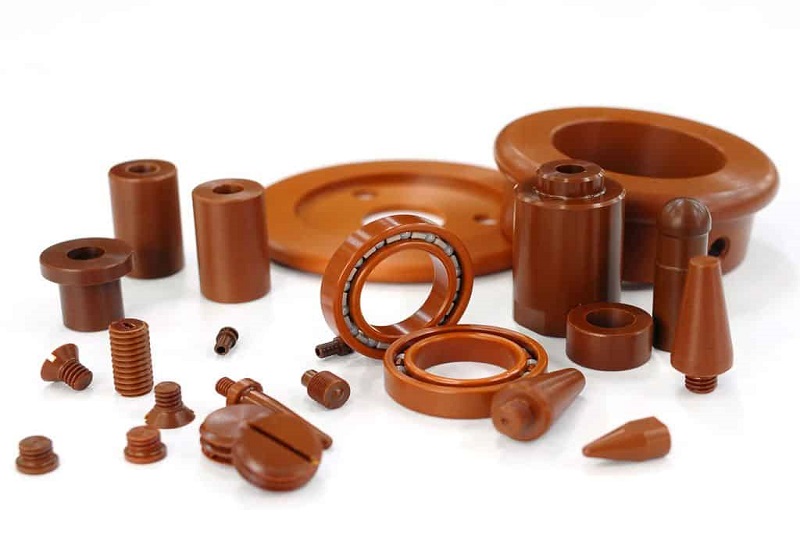
While ordinary plastics begin to deform around 100°C, there exists a material that can remain stable even at 500°C, resist strong acids and alkalis, and perform critical roles in aerospace, semiconductor, and advanced electronics - Polyimide (PI). Known as the "king of high-temperature polymers", polyimide stands at the top of the polymer pyramid, combining exceptional thermal stability, mechanical strength, and chemical resistance.
Polyimide's legendary durability comes from its unique molecular architecture - a fine balance of rigidity and flexibility. It is synthesized by the polycondensation of aromatic dianhydrides and diamines, forming a polymer backbone rich in benzene rings (providing rigidity) and imide groups (providing strength and chemical stability).
This combination gives polyimide a dual armor of high temperature and corrosion resistance.
| Material Type | Long-Term Service Temp | Chemical Resistance | Mechanical Strength | Limitations |
| Polyimide (PI) | 250–300°C (some >500°C) | Excellent (resistant to strong acids, alkalis, and solvents) | Outstanding | High cost, processing difficulty |
| Engineering Plastics (e.g., Nylon) | 80–150°C | Moderate | Good | Deformation at high temperatures |
| Rubber | -50–150°C | Poor | Flexible but low strength | Thermal decomposition, embrittlement |
Compared with typical engineering plastics, polyimide is a next-level performer, often called a "super engineering polymer".
The creation of polyimide centers on the imidization reaction, a two-step process:
Prepolymer Formation: Aromatic dianhydrides and diamines react in polar solvents (like NMP) to form polyamic acid (PAA) - the "genetic code" of the final polymer.
Imidization: Through thermal imidization (heating and dehydration) or chemical imidization (using acetic anhydride, etc.), the PAA transforms into the stable imide ring, completing its "performance awakening".
Advancements in continuous synthesis and greener solvent systems have brought polyimide closer to scalable, cost-effective industrial production.
Polyimide-based composites are used in space shuttle insulation tiles that endure re-entry temperatures above 1000°C, effectively protecting onboard equipment. In satellites, flexible solar cell substrates made from polyimide ensure reliable long-term operation in harsh space conditions.
With high dielectric strength and resistance to 260°C soldering heat, polyimide enables ultra-thin, flexible circuit boards and stable high-frequency signal transmission. In semiconductor packaging, it enhances thermal management between chips and substrates, pushing the limits of Moore's Law.
Polyimide films are the backbone of flexible displays, maintaining stability even after tens of thousands of bends — essential for foldable smartphones and tablets.
Polyimide fibers, with strength comparable to steel yet only one-fifth its density, are used in bulletproof vests and high-temperature filtration systems, ensuring safety and sustainability.
From a niche lab material to an industrial benchmark, polyimide represents the pinnacle of polymer performance. Although challenges remain - high processing cost and limited recycling - innovations such as continuous production, bio-based monomers, and eco-friendly synthesis are accelerating progress.
In the future, polyimide may play a key role in quantum computing, interplanetary exploration, and other cutting-edge fields, continuing to expand humanity's imagination of high-performance materials.
As a true "hardcore champion" among polymers, polyimide not only survives where others fail - it thrives. From aerospace to flexible electronics, it embodies the fusion of science, strength, and sustainability, writing a new chapter in the story of advanced materials.